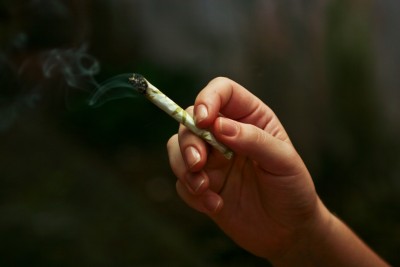Bay State Repeal, a local advocacy group working for the repeal of cannabis prohibition in Massachusetts, filed the first draft of a 2016 ballot initiative petition legalizing the sale of marijuana to adults for recreational use, according to a Friday press release.

Among other requests, the draft sets out to limit access to marijuana for those under 21, while also expanding access for others. BSR filed the first draft of the potential bill for an informal review. The Massachusetts Attorney General’s Office will search for potential faults that could pose legal trouble and keep it off the ballot, the release stated.
Bill Downing, treasurer of BSR, said prohibition creates an unregulated black market, “overwhelms” the justice system and prisons and arrests over 800,000 Americans every year. Minority communities experience the effects of prohibition disproportionately, Downing said.
“Prohibition fills our prisons with a horrifying number of black and Hispanic people, especially considering most users are white,” he said.
These same communities will benefit from legalization, Downing said.
“People who are going to be most affected are minority members in our state,” he said. “Minorities suffer to a greater degree from marijuana laws, so the people who are going to disproportionately benefit from legalization are the ones who disproportionately suffer from prohibition.”
David Rosenbloom, a professor in Boston University’s School of Public Health, said youth are another group that suffers from current marijuana laws.
“Kids who live in communities with lots of police surveillance are more likely to be arrested for marijuana possession and use than kids who live in lightly policed suburban areas,” he said. “There’s a huge disparity and long-term damage to kids who are arrested for the use of marijuana.”
Rosenbloom emphasized health risks youth face if they begin using marijuana at a young age.
“It’s also a problem that early use of marijuana, like many other substances is bad for your health,” he said. “People who started using marijuana heavily as teenagers and continue to use marijuana heavily continue to have poor outcomes than people who did not.”
Aside from eliminating prohibition, the draft states that its goals include restricting the availability of marijuana to minors and eliminating the marijuana black market.
A secret shopper program was included in the draft to ensure compliance of retail outlets with regulations.
The secret shopper program comes from the idea that liquor stores need to police themselves, and it takes advantage of similar experiences in designing functioning, legal markets for tobacco and alcohol, Downing said.
“We don’t want to set up things the way they were originally in the alcohol and tobacco businesses that had to be modified greatly over many years,” he said. “We want to start in a position where we have implemented the modifications that have been made to alcohol and tobacco in regards to marketing, retail and other functions.”
Downing said there are challenges to completely eliminating the black market in marijuana sales. Potential problems include excessive taxation, restricting home grow and limiting the number of licenses for legal marijuana retailers.
He described the idea of a revenue boosting marijuana tax as “misguided.” The price of legal marijuana must undercut the black market price to completely remove it, and a high marijuana tax could allow the black market to flourish if the black market price remains lower than the legal price, Downing said.
“A lot of states have limited the number of licenses for these outlets, had severe taxes, limited the number of people who can grow marijuana legally and these are all things that prop up the black market. These are things [the BSR thinks] are big mistakes,” he said.
The petition must be submitted to the Massachusetts Attorney General’s Office by Aug. 5, according to the Attorney General’s website. The petition will then be filed with the Secretary of State by December 2015. If 64,750 voter signatures are gathered, the petition will be submitted for review by the legislature in January 2016. Then the petition will be submitted to the people at the next biennial election.
Several residents said they support the legalization of marijuana and hope this draft will spread widespread support for the issue.
Matt Keller, 31, of the North End, said the safety of marijuana use is one reason it should be legalized.
“I don’t see any reason why it shouldn’t be legal,” he said. “No one ever died from smoking too much, so it can’t be illegal on the grounds of being dangerous.”
Katie Gaffney, 23, of Jamaica Plain, said she thinks there will be public support for legalization.
“There’s a lot of support because of the population of college students and young adults, and our generation generally supports the legalization of marijuana,” she said.
Corey Baker, 22, of Brighton, said he wasn’t expecting the initiative, but he is in support of legalization.
“I wasn’t expecting it, but I’m not surprised,” he said. “Something like this was bound to happen eventually. There is broad public support for this issue, and it is only a matter of time before marijuana is legalized in Massachusetts.”





















































































































